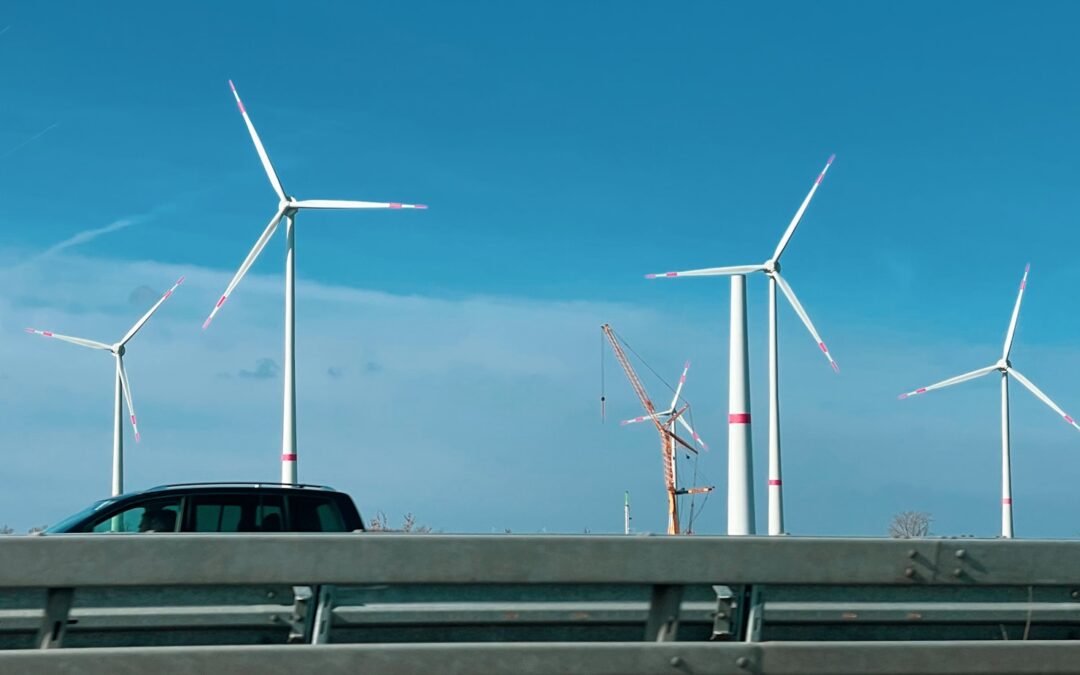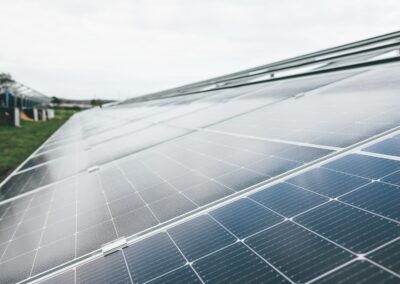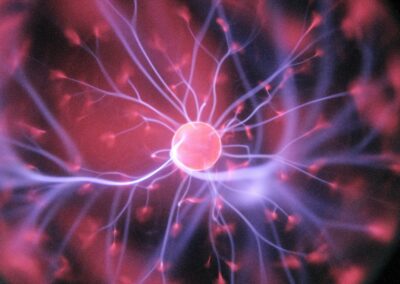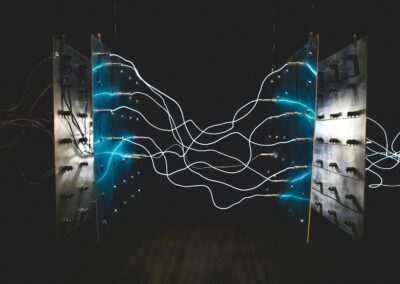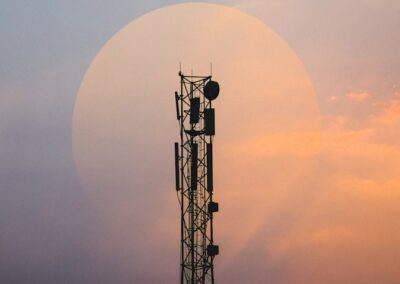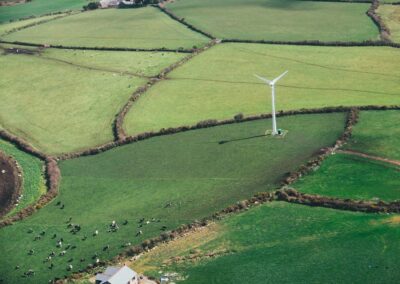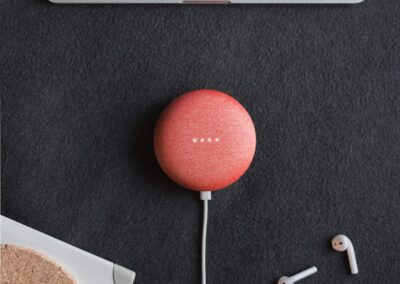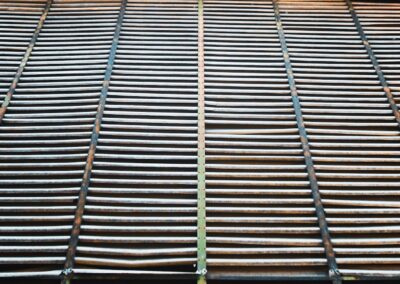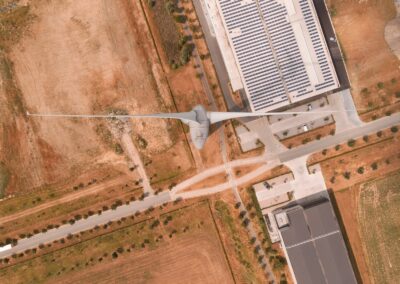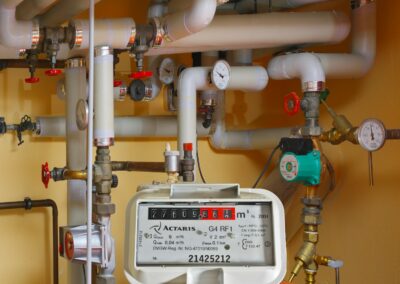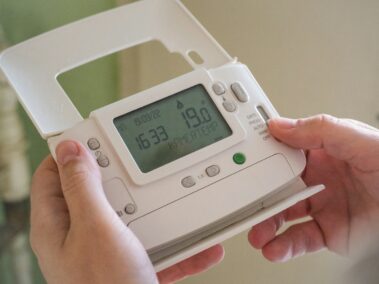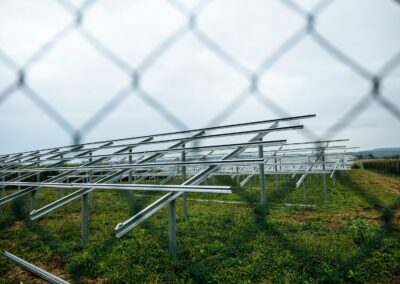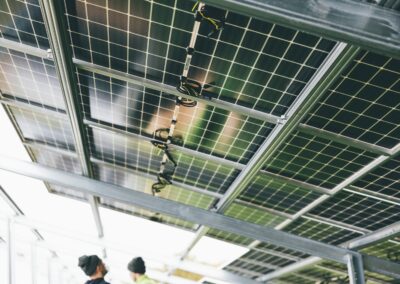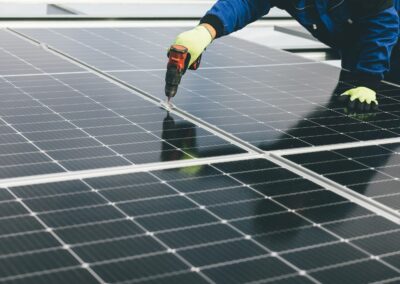Leveraging Digital Twins for Real-Time Data and Equipment Performance in Smart Energy Systems
The Role of Digital Twins in Smart Energy Systems
The integration of digital twins in smart energy systems is revolutionizing how we manage and optimize energy consumption and distribution. Digital twins, which are virtual replicas of physical systems, provide real-time data on equipment performance and condition, enabling more efficient and sustainable energy management. This technology is becoming increasingly crucial in regions like Saudi Arabia and the UAE, where energy efficiency and reliability are paramount.
In cities such as Riyadh and Dubai, the adoption of digital twins is a strategic move to enhance the performance of smart energy systems. These cities are leveraging advanced technologies to create more resilient and adaptive energy infrastructures. Digital twins enable continuous monitoring and analysis of energy equipment, allowing for predictive maintenance and timely interventions. This proactive approach reduces downtime and improves the overall efficiency of energy systems.
By providing a comprehensive view of equipment performance, digital twins help energy managers make informed decisions. This capability is particularly important in managing the integration of renewable energy sources, which can be variable and unpredictable. Digital twins facilitate the balancing of supply and demand, ensuring a stable and reliable energy supply while maximizing the use of clean energy resources.
Enhancing Equipment Performance and Energy Efficiency
One of the key benefits of digital twins in smart energy systems is their ability to enhance equipment performance. By collecting and analyzing real-time data from sensors embedded in energy infrastructure, digital twins can identify potential issues before they become critical. This predictive maintenance capability not only extends the lifespan of energy equipment but also reduces maintenance costs and prevents unexpected failures.
In the UAE, for example, the implementation of digital twins in smart grids has led to significant improvements in energy efficiency. By monitoring the performance of transformers, substations, and other critical components, operators can optimize the operation of these assets. This optimization leads to reduced energy losses and lower operational costs, benefiting both utilities and consumers.
Moreover, digital twins support the integration of advanced energy management strategies. In Riyadh, smart energy initiatives incorporating digital twins have enabled more precise control of energy distribution. This precision helps in minimizing energy wastage and improving the overall sustainability of the energy system. By using real-time data to adjust energy flows and respond to demand fluctuations, digital twins contribute to a more efficient and resilient energy network.
Driving Sustainability and Renewable Energy Integration
Sustainability is a key focus for modern energy systems, and digital twins play a vital role in achieving this goal. By facilitating the integration of renewable energy sources, digital twins help reduce the reliance on fossil fuels and lower greenhouse gas emissions. In regions like Saudi Arabia, where there is a strong commitment to sustainable development, digital twins are becoming an essential tool in the transition to clean energy.
Digital twins enable the effective management of solar and wind power generation, which are inherently variable. By simulating different scenarios and predicting the impact of renewable energy inputs on the grid, digital twins help operators optimize the use of these resources. This capability ensures that renewable energy is utilized efficiently, contributing to a more sustainable energy system.
Furthermore, digital twins support the development of microgrids and distributed energy resources. In Dubai, the use of digital twins in smart energy projects has facilitated the creation of localized energy systems that can operate independently or in conjunction with the main grid. These microgrids enhance energy security and resilience, particularly in remote or underserved areas.
By providing real-time data on the performance and condition of energy equipment, digital twins also enable more effective energy conservation measures. In Saudi Arabia, initiatives to improve energy efficiency in buildings and industrial facilities are leveraging digital twin technology to monitor and optimize energy use. This approach not only reduces energy consumption but also supports the country’s broader sustainability objectives.
Implementing Digital Twins in Smart Energy Systems
The successful implementation of digital twins in smart energy systems requires a strategic approach that involves several key components. These include the integration of IoT sensors, the development of robust data analytics capabilities, and the adoption of cloud-based platforms for data storage and processing.
In Riyadh, government initiatives are promoting the adoption of digital twins and smart energy technologies. These initiatives provide guidelines and support for energy operators to implement digital twins effectively. By fostering collaboration between technology providers, utilities, and regulatory bodies, Riyadh aims to create a conducive environment for the widespread adoption of digital twins.
Similarly, in Dubai, efforts are underway to enhance energy system performance through digital twins. The focus is on creating a robust infrastructure for data collection and analysis, ensuring that digital twins can provide accurate and actionable insights. This involves investing in advanced IoT sensors, data analytics tools, and cloud computing platforms.
Education and training programs are also essential for equipping energy professionals with the skills needed to leverage digital twins effectively. These programs should cover both technical aspects and practical applications, ensuring that professionals can implement and manage digital twins in their projects. In Saudi Arabia, partnerships between academic institutions and industry players are facilitating the development of specialized training programs for digital twin technology.
Conclusion: Embracing the Future of Smart Energy
In conclusion, digital twins are playing a transformative role in the development of smart energy systems. By providing real-time data on equipment performance and condition, digital twins enable more efficient and sustainable energy management. In regions like Saudi Arabia and the UAE, where energy reliability and efficiency are critical, digital twins are becoming an indispensable tool for modern energy management.
The successful implementation of digital twins requires a strategic approach that includes the integration of IoT sensors, data analytics capabilities, and cloud-based platforms. By investing in these technologies and fostering collaboration between stakeholders, cities like Riyadh and Dubai are paving the way for smarter, more resilient energy systems. As the energy sector continues to evolve, digital twins will play a crucial role in shaping the future of smart energy and sustainable development.
—
#DigitalTwins #SmartEnergy #EnergyManagement #Sustainability #SaudiArabia #UAE #Riyadh #Dubai #AIinEnergy #RenewableEnergy #ModernEnergySolutions

